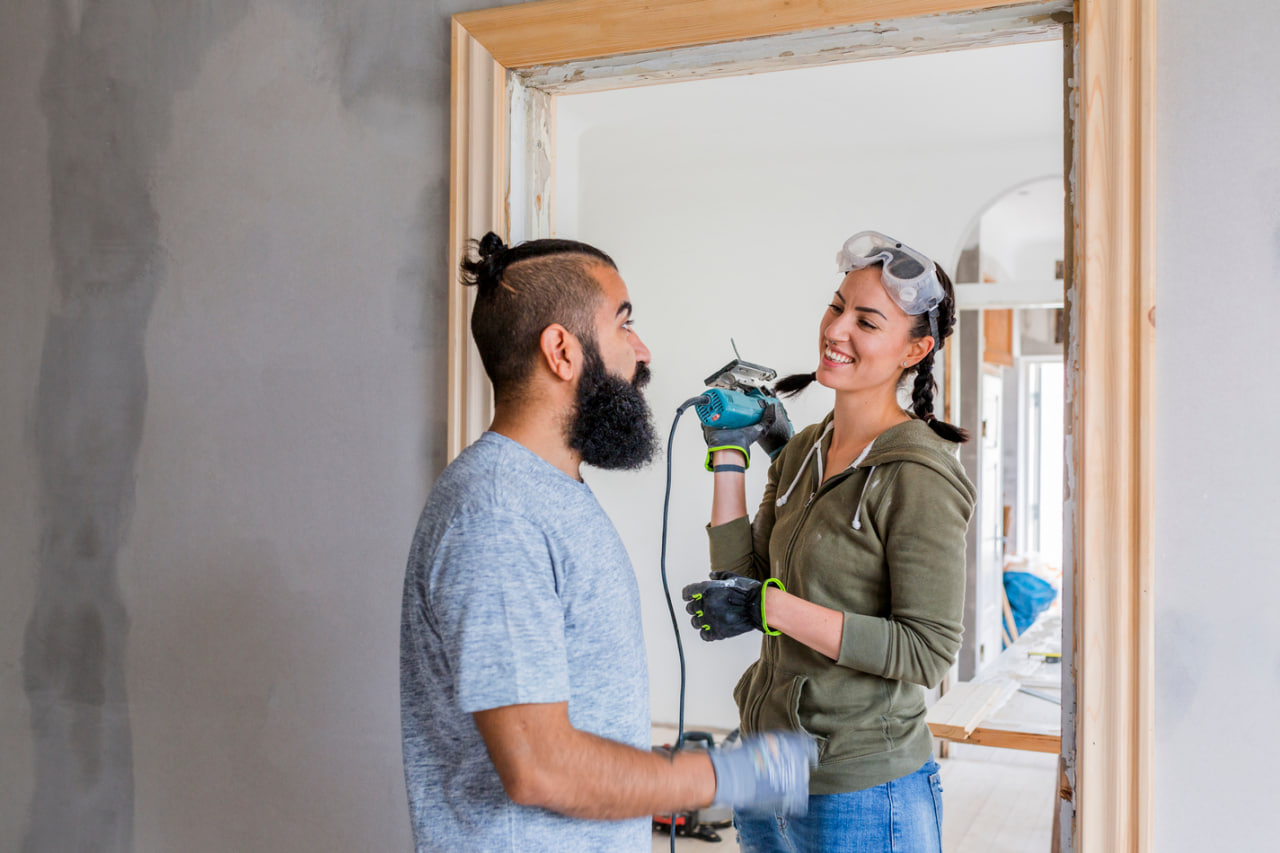Address
304 North Cardinal St.
Dorchester Center, MA 02124
Work Hours
Monday to Friday: 7AM - 7PM
Weekend: 10AM - 5PM

Taking care of your home and belongings often involves making repairs, adjustments, and improvements. Many people enjoy the independence and savings that come with handling projects themselves, while others prefer to rely on trained professionals. Both approaches have their strengths, and knowing when to choose DIY and when to call an expert can save you time, money, and stress. Understanding the balance between personal skills and professional support ensures your repairs are done safely and correctly.
The first step in deciding between DIY and professional help is understanding the complexity of the task. Some fixes are simple and require minimal tools, while others involve systems that need specialized training.
Small tasks like tightening loose screws, patching nail holes, lubricating hinges, or replacing a showerhead are excellent DIY opportunities. These repairs are easy to learn, involve minimal risk, and help build confidence.
However, structural repairs, gas-related work, complex electrical issues, and appliance problems often demand professional expertise. Without proper knowledge, these repairs can lead to further damage or serious safety hazards.
Safety should always be a top priority when deciding whether to tackle a repair yourself. Many household repairs seem simple on the surface but involve hidden risks that only trained technicians know how to handle.
DIY is generally safe for low-risk tasks such as painting, assembling furniture, or fixing minor plumbing leaks. But when a repair involves high voltage, heavy equipment, or hazardous materials, the danger increases significantly.
Professionals follow strict protocols to prevent accidents and ensure repairs meet safety standards. Calling an expert not only protects your home but also protects you from injury.
The tools you have access to often determine whether a repair is feasible. Some projects require only basic hand tools, making them perfect for DIY. Tasks like replacing doorknobs, installing shelves, or re-caulking a sink can be done with simple equipment.
On the other hand, certain repairs require specialized tools that are expensive, hard to find, or difficult to use correctly. Power tools for precision cutting, diagnostic devices for electrical issues, and heavy-duty equipment for mechanical repairs are examples of tools professionals use daily.
Attempting a repair without the proper equipment may lead to poor results or cause further damage, making professional help a smarter investment.
DIY repairs often take more time than expected. Even simple tasks can become frustrating if you are learning as you go. Homeowners who enjoy hands-on work or want to develop new skills may welcome the challenge, but others may find it time-consuming.
Large or technical repairs require specialized knowledge. Professionals complete these tasks efficiently because they have years of training, experience, and practice. Hiring an expert can save significant time—especially when a problem needs immediate attention.
Before starting a DIY project, ask yourself whether you are comfortable with the learning curve and the time commitment. If the project feels overwhelming, calling an expert can be the best choice.
Cost is one of the main reasons people choose DIY repairs. For minor issues, DIY can save money by avoiding service fees. However, a DIY mistake on a major repair can become much more expensive in the long run.
Professionals may cost more upfront, but their work is typically guaranteed, completed to code, and designed to last. They understand underlying causes, not just visible symptoms, preventing repeated issues.
When evaluating cost, consider both short-term savings and long-term value. Sometimes investing in expert service protects your home, your tools, and your wallet.
DIY repairs are ideal for tasks that are simple, safe, and well within your skill range. These projects allow you to learn new techniques, gain confidence, and improve your home.
Tasks like replacing faucet washers, tightening cabinet hardware, unclogging drains with simple tools, painting walls, weatherstripping doors, and fixing loose tiles are all suitable for DIY. These repairs require minimal risk and offer noticeable results.
DIY is also a good option for non-urgent issues. If you have the time to research and practice, you can learn valuable skills and enjoy the satisfaction of completing the job yourself.
Calling a professional is the smartest option when repairs involve safety hazards, technical knowledge, or complex systems. Electricians, plumbers, carpenters, appliance technicians, and HVAC specialists have expertise that cannot be replaced by tutorials.
You should call an expert when you encounter electrical problems, gas leaks, deep plumbing issues, major structural damage, malfunctioning appliances, or anything covered by warranty. Professionals diagnose the root cause, ensure proper repairs, and protect your home from further issues.
Hiring an expert also provides peace of mind. You can rely on their skills, accountability, and compliance with regulations that DIY solutions may overlook.
One of the most important parts of home repair is recognizing personal limitations. It is not a weakness to ask for help—in fact, it shows responsibility. Many people begin a project confidently but realize halfway through that they lack the proper tools, knowledge, or experience.
When this happens, stopping the DIY attempt and calling a professional can prevent further damage. Experts are used to taking over mid-project and can complete the work safely and efficiently.
Understanding when to step back ensures your home remains in good condition and your repairs maintain quality standards.
Many homeowners find that the best approach is a combination of DIY and expert service. Handling simple tasks yourself reduces costs and increases home knowledge, while calling professionals for complex jobs ensures your home stays safe and functional.
For example, you can handle cosmetic improvements while professionals take care of electrical upgrades. You might troubleshoot small appliance issues, but leave internal repairs to certified technicians.